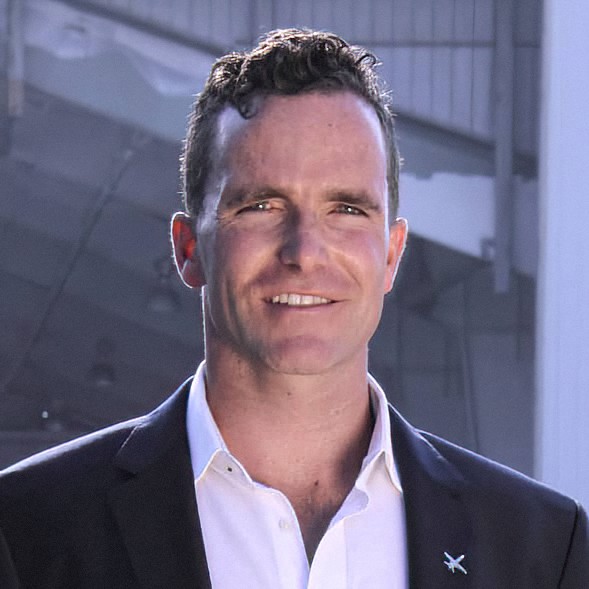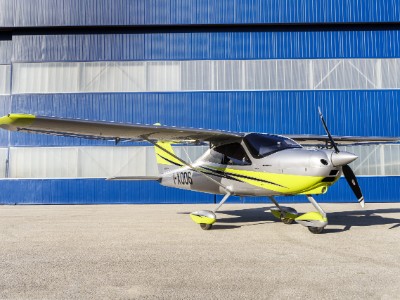If you aspire to become a pilot, you must pass tests and training, but the required training usually differs depending on the type of pilot you want to be. Two popular types of pilots are private pilots and commercial pilots.
Both pilots operate for different reasons and require different qualifications. This article will explain the significant differences between a private pilot and a commercial pilot to guide you toward making a decision.
Who is a Private Pilot?
A private pilot is a pilot in command (PIC) who has completed private pilot training and now holds a certificate, allowing them to fly specific aircraft for personal and recreational purposes. However, these pilots can’t fly for hire or compensation.
Private pilots undergo training on small aircraft operations and other necessary training from a certified instructor. The training helps them to fly safely with passengers.
Who is a Commercial Pilot?
A commercial pilot is a professional pilot who holds a commercial pilot certificate that allows them to operate small and large aircraft for commercial purposes. This means they carry passengers, cargo and render other aviation services for commercial airlines, cargo operators, charter companies, or government agencies.
Commercial pilots undergo rigorous training, which includes attaining hundreds of flight hours. They undergo continuous training and must adhere strictly to guidelines to ensure the safety of passengers and cargo.
4 Main Differences Between a Private Pilot and a Commercial Pilot?
There are several differences between a private pilot and a commercial pilot. They include:
Purpose of Flying
The most significant difference between private and commercial pilots is their reason for flying. A private pilot flies for fun and personal purposes like traveling with family. Hence, aviation is mainly a hobby for private pilots rather than a career. Usually, private pilots operate relatively small and less complex aircraft with few seats.
On the other hand, commercial pilots fly for hire or compensation, so aviation is a career path for them. They seek jobs in charter companies, commercial airlines, and other organizations to fly passengers, cargo, etc. These pilots operate large and more complex aircraft designed for commercial flights.
Training and Certification
The training and certification requirements for private and commercial pilots differ. A private pilot requires less training to get certified. Applicants must accumulate at least 40 hours of flight time, which includes training with a certified instructor and solo flight time.
Before a private pilot can be certified, they must own a student, recreational, or sport pilot license. They must also pass the FAA test and exam and adhere to private pilot certification (license) requirements. To get certified, a private pilot must also have a third-class medical certificate or BasicMed.
On the other hand, commercial pilots must obtain a corresponding commercial pilot certificate but must first have at least a private pilot certificate. The commercial pilot license requires more training and flight hours. You need at least 250 flight hours to be a commercial pilot, including solo flight, training, and cross-country flight.
To get a commercial pilot license and become a pilot in this category, you must also pass the FAA written test and get a 2nd class medical certificate, which is higher than the one required for private pilots. You also need an instrument rating to fly in specific conditions and aircraft.
Responsibility and Regulations
Private pilots fly for pleasure and personal transportation, so fewer responsibilities and regulations are involved. There is more flexibility in choosing when and where to fly as long as they adhere to the general guidelines and restrictions set by the FAA.
However, commercial pilots face more restrictions and regulations because they fly for commercial reasons. They are responsible for the safety of their passengers or cargo, so commercial pilots must adhere to stricter safety guidelines and regulations.
Flying commercial aircraft is more risky, mainly because they are larger and more complex. Thus, commercial pilots must also have a higher level of mastery, undergoing continuous training. And as earlier said, they must meet a higher medical standard, 2nd class medicals, and undergo regular medical examinations.
Salary and Compensation
Private pilots fly for personal purposes, so they cannot directly earn from flying. But, they can equally share the flight expenses with passengers if it includes only fuel, oil, airport expenditures, and rental fees.
Sometimes, a private pilot can be compensated for flight operation expenses directly related to search and location operations controlled by a local, state, or federal agency or an organization conducting search and location operations. The reimbursement only covers fuel, oil, airport expenditures, or rental fees.
Also, private pilots may fly for compensation or hire in a few situations. This includes an aircraft in connection with any business or employment if the flight is only incidental to that business or profession and if it doesn’t carry passengers. Also, they could receive compensation when acting as PIC of a charitable, nonprofit, or community event flight that complies with FAA requirements.
On the other hand, commercial pilots typically operate for hire or compensation. They can also earn competitive salaries, flying for commercial airlines, cargo services, etc. They are paid a salary or hourly rate for their services.
Choose The License That’s Best For You and Enjoy The Flight
The choice between becoming a private pilot or a commercial pilot depends on your goals and aspirations in aviation. Private pilots find joy in flying for personal purposes and leisure, while commercial pilots pursue a career in aviation, operating large aircraft and providing services for commercial airlines and other organizations. While private pilots may have limited opportunities for compensation, commercial pilots have the potential for competitive salaries and career advancement.
Ultimately, whether you choose to fly for personal enjoyment, as a private or recreational pilot, or pursue a professional path, both roles offer unique experiences and the opportunity to soar through the skies. Choose the license that’s right for you, contact a reliable aviation insurance broker, and enjoy the flight!

Benjamin Peterson
Graduated from the University of North Dakota with a degree in Commercial Aviation as a Pilot and Flight Instructor. My first professional job was working for Cirrus Aircraft as an instructor.
